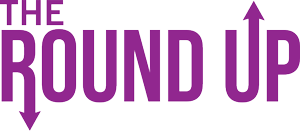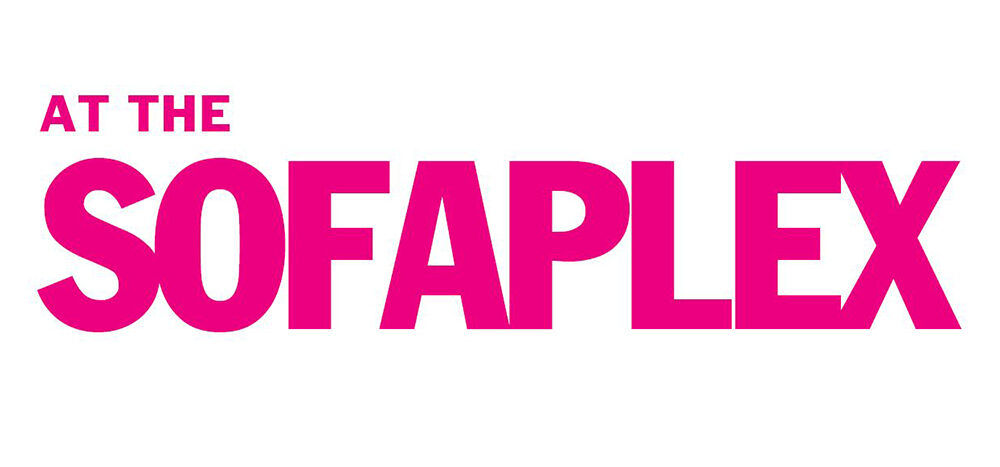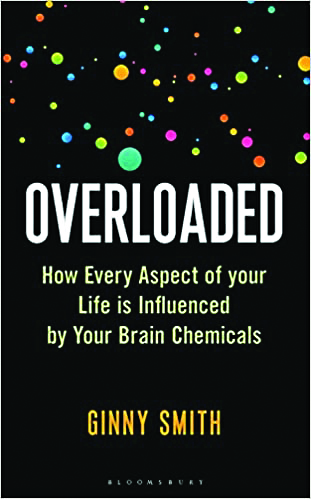Overloaded, by Ginny Smith (Bloomsbury, 325 pages)
Science writer Ginny Smith’s Overloaded, while not the most sparkling prose you’ll read this year, does a yeoman’s job at explaining, in understandable language, the workings of the brain and what controls it. Mindfulness has its place, but in fact, our thoughts, emotions and memories are the sum of what Smith calls “a turbulent sea of neurotransmitters.” And sea is not just a figure of speech. “It seems to me that the answer lies not in the wiring of our brains, but in the chemicals that bathe them,” Smith writes.
Smith starts by assuming that we have forgotten everything we learned in high school and teaching a sort of CliffsNotes class in Neurology 101: the differences between sensory and motor neurons, the duties of the synapse, how electrical signals flow. Along the way, like a good professor, she introduces some interesting people, such as Luigi Galvani, the Italian scientist who figured out how to make the legs of dead frogs twitch (inspiration for Mary Shelley’s Frankenstein), and two European scientists who shared the Nobel Prize in 2006 even though each disagreed with the other’s work. (Nice to know that even Nobel Prize winners can bicker like crows.)
From there Smith delves into eight typical areas of interest regarding the brain: memories, motivation, mood swings and fear, sleep, hunger and satiation, decision-making, love and attraction, and pain.
In the chapter on memory she darts from treatments for PTSD to imprinting in ducklings to the long-term effects on the neglected children in Romanian orphanages. It’s a skillfully woven collection of stories, but unfortunately, offers no significant or surprising information on how to maintain our own memory.
The chapter on motivation delves into research on primates and mice and does a good job of explaining how dopamine works and why its effects decline over time. Again, however, the chapter held more promise than it delivered. Any real-life application might have to do with drug or alcohol withdrawal, not how to get motivated to exercise or clean the house.
By “Mood Swings and Scary Things,” I’m on to the pattern. Smith dangles an interesting topic in front of me — sharks! — and then swims away. After a quick dip in the mechanics of the fear response, she’s suddenly musing about the moods of a childhood tortoiseshell cat. And on it goes.
By the time we come to sleep, which Smith considers the brain’s greatest mystery, I’ve given up on getting any practical application for my life, and I’m only here for the anecdotes. Admittedly, they are good, such as the story of a strange illness that spread throughout Vienna in 1916 and came to be known simply as “sleepy sickness.” (People would feel generally unwell at the start, and then, as the illness progressed, spend more and more time asleep. Eventually they fell into a coma and died, basically sleeping themselves to death.)
The illness killed about one million people over 10 years and eventually disappeared, and there still is no consensus on the cause, although it must have had something to do with hypothalamus, which is the part of the brain that controls sleepiness and wakefulness.
Here, too, we finally get to Alzheimer’s disease, and theories about sleep deprivation might be connected, since during sleep, a sort of rinse cycle of the brain sweeps out waste that is believed to be involved in the development of dementia.
By now we know that in “Food for Thought” we’re not going to get any dieting tips. In fact, unhelpfully, Smith even writes, “There is currently only one really effective treatment for obesity: bariatric (or weight loss) surgery.” Also, she confides that when she is quite reasonably attracted to the pastry tray at a breakfast buffet, she deals with temptation by: filling her plate with fruit and yogurt. At this point, she reveals herself to be some freak of nature, sort of like the aliens in suits in Men in Black, so she has diminished cred in the ensuing discussion on eating disorders.
Finally, you’ve probably heard of St. Elmo’s fire, but how about St. Anthony’s fire? That’s another strange disease, this time in medieval France, in which poor people were afflicted with severe pain in the extremities. (Eat the rich — they never got it.) It turns out that the people were getting sick from a fungus that grew in the rye used in bread and beer. Even stranger, this discovery eventually led to a substance that is much more familiar today — oxytocin.
Overloaded suffers from an overload of English spelling (Smith teaches at the University of Cambridge), an overload of the author’s personal anecdotes and, most egregiously, an overload of exclamation marks. It won’t be the best book you read this year; in fact, let’s hope it’s the worst. But it’s a serviceable summer read for the intellectually curious. C
BOOK NOTES
With Father’s Day upon us, can we reflect on the problem that there is no equivalent of “chick lit” for men?
That said, we have scoured the internet and solved your gift-giving problem. Pair one of these with a box of Wicked Whoopies and you’re done.
For dads who love golf:Best Seat in the House, 18 Golden Lessons from a Father to His Son, by Jack Nicklaus II and Don Yaeger (Thomas Nelson, 224 pages). The son of PGA champ Jack Nicklaus reflects on his dad and the sport.
For dads who love cars:A Man and His Car, Iconic Cars and Stories from the Men Who Love Them, by Matt Hranek (Artisan, 240 pages)
For dads who watch Fox News: Tales from the Dad Side, by Fox personality Steve Doocy (William Morrow, 224 pages). This one’s been out a while, but genuinely funny, and the stories about son Peter (now a White House correspondent) are a hoot.
For dads who hate Fox News: Hoax: Donald Trump, Fox News and the Dangerous Distortion of Truth, by Brian Stelter (Atria, 368 pages). The author is not without bias: he’s an anchor on CNN. Paperback version is out this month, too.
For dads of a certain age: Sinatra and Me, In the Wee Small Hours, by Tony Oppedisano (Scribner, 320 pages). The singer’s longtime confidante spills the tea.
For dads of a certain age more into rock than Sinatra: The Collected Work of Jim Morrison, edited by Frank Lisciandro (Harper Design, 584 pages). He was only 27 when he died, but the Doors’ front man left 28 handwritten journals, which are among the private and public writing assembled here.
For dads who like humor: Daditude, by Chris Erskine (Prospect Parks Books, 180 pages). A popular syndicated columnist writes on the “joys and absurdities of modern fatherhood.
And finally, not that we’re typecasting, for dads who like to grill: How to Grill Everything, by Mark Bittman (Houghton Mifflin Harcourt, 576 pages). A famous food writer shares his secrets on grilling everything from steak to desserts.
Book fairs
Author events
• STACEY ABRAMS Author presents Our Time is Now. Hosted by Gibson’s Bookstore in Concord. Virtual, via Zoom. Tues., June 22, 7 p.m. Registration and tickets required. Visit gibsonsbookstore.com or call 224-0562.
• PAUL DOIRON Author presents Dead by Dawn. The Music Hall, 28 Chestnut St., Portsmouth. Thurs., July 1, 6 p.m. Tickets cost $60 to $180 per table. Visit themusichall.org or call 436-2400.
• TERRY FARISH Meet-and-greet with picture book and young adult author. Kingston Community Library, 2 Library Lane, Kingston. Thurs., July 8, 3:30 p.m. Registration required. Visit kingston-library.org.
• CHRISTINA BAKER KLINE Author presents The Exiles. Hosted by The Music Hall in Portsmouth. Tues., July 13, 7 p.m. Virtual. Tickets cost $5. Visit themusichall.org or call 436-2400.
• MEGAN MIRANDA Author presents Such a Quiet Place. Hosted by The Music Hall in Portsmouth. Tues., July 20, 7 p.m. Virtual. Tickets cost $5. Visit themusichall.org or call 436-2400.
Call for submissions
• NH LITERARY AWARDS The New Hampshire Writers’ Project seeks submissions for its Biennial New Hampshire Literary Awards, which recognize published works written about New Hampshire and works written by New Hampshire natives or residents. Books must have been published between Jan. 1, 2019 and Dec. 31, 2020 and may be nominated in fiction, nonfiction, poetry, children’s picture books, middle grade/young adult books. All entries will be read and evaluated by a panel of judges assembled by the NHWP. Submission deadline is Mon., June 21, 5 p.m. Visit nhwritersproject.org/new-hampshire-literary-awards.
Poetry
• DOWN CELLAR POETRY SALON Poetry event series presented by the Poetry Society of New Hampshire. Monthly. First Sunday. Visit poetrysocietynh.wordpress.com.
Book Clubs
• BOOKERY Online. Monthly. Third Thursday, 6 p.m. Bookstore based in Manchester. Visit bookerymht.com/online-book-club or call 836-6600.
• GIBSON’S BOOKSTORE Online, via Zoom. Monthly. First Monday, 5:30 p.m. Bookstore based in Concord. Visit gibsonsbookstore.com/gibsons-book-club-2020-2021 or call 224-0562.
• TO SHARE BREWING CO. 720 Union St., Manchester. Monthly. Second Thursday, 6 p.m. RSVP required. Visit tosharebrewing.com or call 836-6947.
• GOFFSTOWN PUBLIC LIBRARY 2 High St., Goffstown. Monthly. Third Wednesday, 1:30 p.m. Call 497-2102, email elizabethw@goffstownlibrary.com or visit goffstownlibrary.com
• BELKNAP MILL Online. Monthly. Last Wednesday, 6 p.m. Based in Laconia. Email bookclub@belknapmill.org.
• NASHUA PUBLIC LIBRARY Online. Monthly. Second Friday, 3 p.m. Call 589-4611, email information@nashualibrary.org or visit nashualibrary.org.
Featured photo: Overloaded






